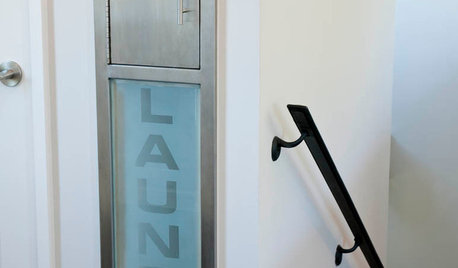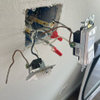Should I GFI my clothes washer ?
daft_punk
15 years ago
Featured Answer
Sort by:Oldest
Comments (23)
spencer_electrician
15 years agolast modified: 9 years agodaft_punk
15 years agolast modified: 9 years agoRelated Professionals
Athens General Contractors · Delhi General Contractors · Lakewood Park General Contractors · Montclair General Contractors · New Baltimore General Contractors · North Smithfield General Contractors · Shaker Heights General Contractors · Palm River-Clair Mel General Contractors · Brentwood Los Angeles Solar Energy Systems · Mokena Solar Energy Systems · Torrington Solar Energy Systems · Birmingham Home Automation & Home Media · Boston Home Automation & Home Media · Hull Home Automation & Home Media · Leesburg Home Automation & Home Mediapjb999
15 years agolast modified: 9 years agotexasredhead
15 years agolast modified: 9 years agopjb999
15 years agolast modified: 9 years agobrickeyee
15 years agolast modified: 9 years agotexasredhead
15 years agolast modified: 9 years agopharkus
15 years agolast modified: 9 years agopjb999
15 years agolast modified: 9 years agodaft_punk
15 years agolast modified: 9 years agopjb999
15 years agolast modified: 9 years agonormel
15 years agolast modified: 9 years agodaft_punk
15 years agolast modified: 9 years agodaft_punk
15 years agolast modified: 9 years agopjb999
15 years agolast modified: 9 years agopudge565
15 years agolast modified: 9 years agodaft_punk
15 years agolast modified: 9 years agotexasredhead
15 years agolast modified: 9 years agolonesparky95
15 years agolast modified: 9 years agoperel
15 years agolast modified: 9 years agopudge565
15 years agolast modified: 9 years agotexasredhead
15 years agolast modified: 9 years ago
Related Stories

GREAT HOME PROJECTSHate Hauling Laundry? Give Dirty Clothes the Chute
New project for a new year: Install a quick route to the laundry room
Full Story
ORGANIZINGSmart Solutions for Clothes Closets
The Hardworking Home: Explore these ways to store your clothes, shoes and accessories to make the most of your space
Full Story
CLOSETS8 Dream Closets Go Beyond Storing Clothes
Yes, they've still got hangers and drawers. But these luxurious dressing rooms also have views, artwork or an added purpose
Full Story
KITCHEN DESIGNRenovation Detail: The Kitchen Laundry Room
Do your whites while dishing up dinner — a washer and dryer in the kitchen or pantry make quick work of laundry
Full Story
REMODELING GUIDESContractor Tips: Advice for Laundry Room Design
Thinking ahead when installing or moving a washer and dryer can prevent frustration and damage down the road
Full Story
FEEL-GOOD HOME12 Very Useful Things I've Learned From Designers
These simple ideas can make life at home more efficient and enjoyable
Full Story
KITCHEN DESIGNSingle-Wall Galley Kitchens Catch the 'I'
I-shape kitchen layouts take a streamlined, flexible approach and can be easy on the wallet too
Full Story
LIFEYou Said It: ‘They Looked at Me Like I Had 10 Heads’
Design advice, inspiration and observations that struck a chord
Full Story
STORAGEMan Space: A Guy Likes a Nice Closet, Too
If clothes make the man, shouldn't a man make a great space for the clothes? Take inspiration from these dream closets for dudes
Full Story
LAUNDRY ROOMSA Kitchen Laundry Cabinet Full of Surprises
A little DIY spirit allowed this homeowner to add a washer, dryer, kitchen countertop and dining table all in one
Full Story






pjb999